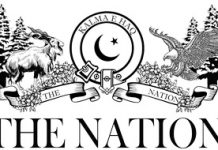THE present world order was conceived in the wake of the unprecedented destruction caused by the Second World War. The principles underpinning the world order were encapsulated in the Charter of the United Nations that was established in 1945. The UN member states made a solemn commitment to respect each other’s sovereignty and territorial integrity, not to interfere in each other’s internal affairs, and to resolve their disputes through peaceful means. These principles served the world well for over 50 years. The UN emerged as the universal, most representative, and most respected international organisation.
Things began to change, however, with the advent of the 21st century. Major powers started violating the Charter principles with impunity. When the US decided to invade Iraq on suspicions of weapons of mass destruction, the UN Security Council did not agree as there was not enough evidence justifying the violation of the territorial integrity of a fellow UN member state. The US formed a ‘coalition of the willing’ and went ahead with the invasion. That was the start of unilateralism trumping multilateralism. Ever since, there have been numerous instances of major powers opting for unilateral approaches to secure their perceived national interests.






